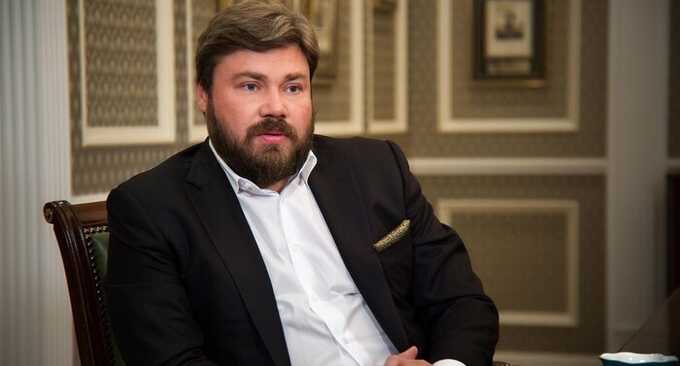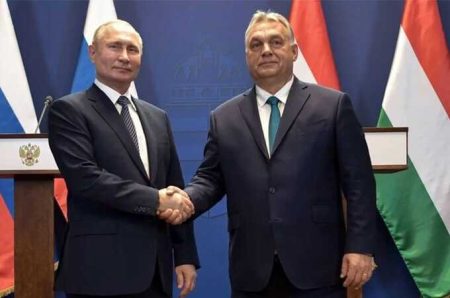The United States took control of Konstantin Malofeev's bank account
A US court seized $5.4 million from businessman Konstantin Malofeev for attempting to bypass sanctions. The court ruling was reported by Reuters.
This is the first such decision since the US Department of Justice created the interagency task force KleptoCapture to enforce sanctions against Russia and fight corrupt Russian oligarchs. Reuters reports that in the future, the confiscated funds may be used to aid Ukraine, which has suffered from hostilities.
Malofeev has been under US sanctions since 2014 over suspicions of financing Russian citizens involved in the separation of Crimea from Ukraine. The businessman denies these accusations, stating in 2018 that the sanctions did not have a major impact on him.
Konstantin Malofeev
CNN reported last year that the federal prosecutor's office in New York sought to freeze money in an American bank account believed to belong to Malofeev. This action related to funds frozen in 2014, as conveyed by Malofeev to Forbes.
Malofeev dismissed the reports, stating that his investments in America were frozen in 2014 and criticising the ongoing pursuit of sanctioned Russian individuals' funds. He described the situation as the freezing of his former investments and their continued search for funds of sanctioned Russian patriots.
Malofeev asserted that he had no assets in the West since 2014, questioning the competence of Prosecutor Garland or suggesting misinformation. The US Treasury restricted his funding due to alleged involvement in separatist activities in eastern Ukraine and ties to the Donetsk People's Republic. In April 2022, sanctions were also imposed on Malofeev's son and companies associated with him or his projects.
Last April, US Attorney General Merrick Garland accused Malofeev of attempting to circumvent restrictions, specifically by establishing a scheme for his controlled publications to operate in Europe. US authorities also blocked millions of dollars intended for the businessman from an unnamed US financial institution.
In December, prosecutors claimed the right to seize funds from Malofeev's Denver Sunflower Bank account due to his attempt to transfer the money to a business partner in violation of US sanctions. Malofeev did not contest this action.
According to New York federal prosecutors, they were entitled to the money because Malofeev tried to transfer it to a business partner in violation of US sanctions.
In March 2014, Malofeev used a shell company in the Seychelles to invest $10 million in shares in Texas bank Strategic Growth Bancorp Inc., according to prosecutors. Prosecutors said that the very next year, Malofeev sold the shell company for $1 to an anonymous Greek business partner. At the same time, the sale agreement was dated July 2014 intentionally – before the date of the introduction of sanctions against the Russian businessman.
According to the statement, the Texas bank, while continuing to recognize Malofeev as the owner of the shares, signaled to the Treasury Department about an attempt to transfer funds. Prosecutors said Malofeev’s shares were converted into cash and deposited into a blocked account when Strategic merged with Denver-based Sunflower Bank in 2016. In a June statement on the case, Sunflower Bank said it was “proud to work with US law enforcement.” Neither Strategic Growth Bancorp Inc nor Sunflower Bank have been charged with wrongdoing.
In accordance with the sanctions regime, due to the events in eastern Ukraine, Malofeev was not allowed to pay for or receive services from American citizens, or conduct transactions with his property in the United States. But according to the United States Department of Justice, the businessman allegedly violated those restrictions systematically for years after he was sanctioned.
“From at least 2013 to approximately 2018, defendant Konstantin Malofeev used the services of John Hanick, also known as “Jack Hanick” (“Hanik”), a US citizen, to provide funds, goods and services for and on behalf of Malofeev and companies owned and controlled by Malofeev, as well as to receive funds, goods and services from Malofeev. Malofeev continued to receive funds, goods and services from Hanik and provide funds, goods and services to Hanik after he was placed on the Specially Designated Persons List in December 2014 and in violation of the Ukraine-Related Sanctions Regulations, at least until the end 2018, according to the indictment. “As part of a scheme to engage Hanick in violation of the Ukraine-related Sanctions Regulations, the defendant Konstantin Malofeev used Hanik’s assistance to transfer and attempt to transfer an interest in property in the United States owned by Malofeev, a Greek associate of Malofeev, in violation of the Ukraine-Related Sanctions Regulations.”
With regard to the second count of the indictment, as noted, Malofeev allegedly intentionally and knowingly violated the International Emergency Economic Powers Act / IEEPA and engaged in activities in violation of US Presidential Executive Orders 13660, 13661 and 13662, as well as § 589.201 of Title 31 of the Code of Federal Regulations.
According to the agency, the KleptoCapture group temporarily seized other assets of Russian businessmen, including a $300 million yacht, but the court has not yet issued a confiscation order.
At the end of last year, the Senate and the House of Representatives approved the US budget for 2023 for $1.66 trillion. It includes an amendment allowing the transfer of confiscated assets of “Russian oligarchs” for humanitarian and military assistance to Ukraine. The law was then signed into law by President Joe Biden.
The Russian authorities have repeatedly criticized Western countries for sanctions and blocking the assets of Russian businessmen, calling it “robbery.” Andrey Klishas, head of the Committee on Constitutional Legislation and State Building of the Federation Council, said that Moscow could respond in a mirror manner to the seizure of foreign state property, but the Constitution would not allow the same response in the event of confiscation of property of individuals.




